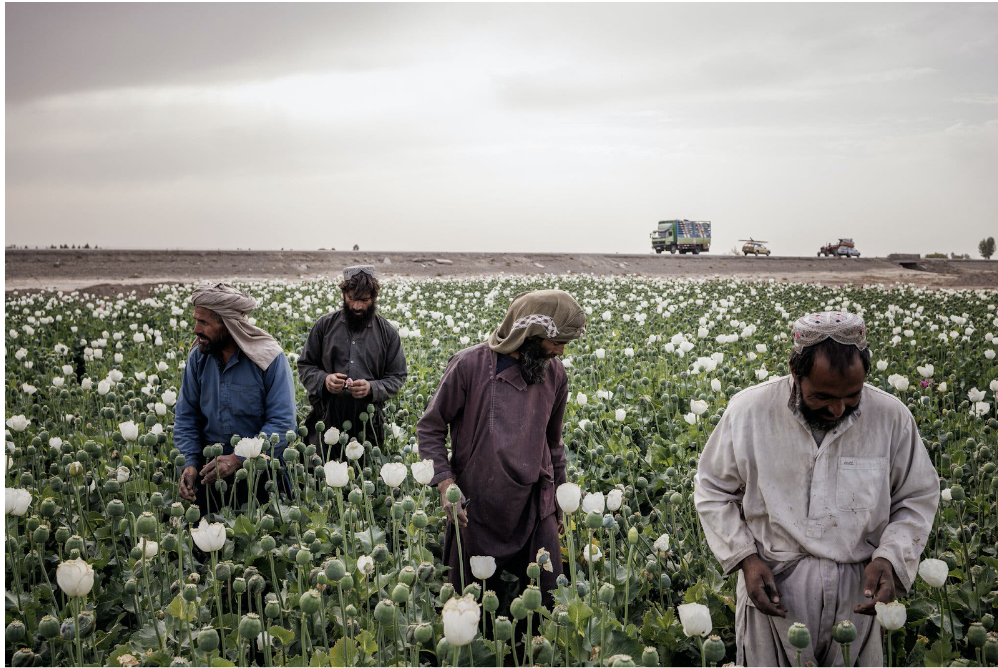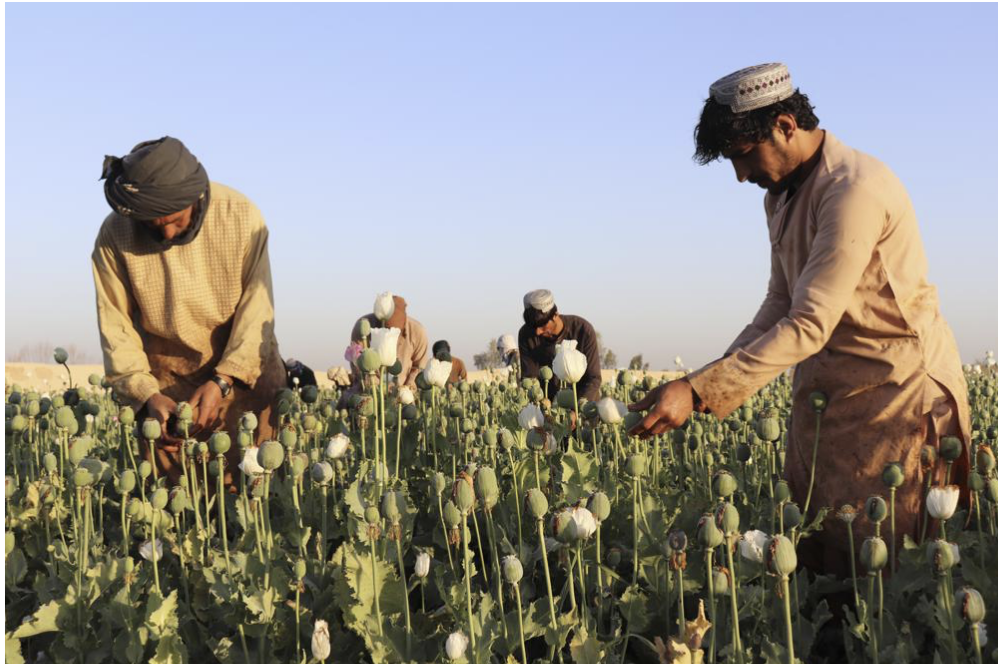Taliban Outlaws the Production of Opium Poppies
Farmers cultivating opium poppies. Photo: The New York Times
Recently, the Taliban announced that it was banning the cultivation of the opium poppy in Afghanistan. The decision not only impacts Afghanistan’s farmers who rely on harvesting poppies for their income, but also the rest of the world.
Afghanistan’s production of opium has had a significant global impact. It is estimated around 87-90% of the opium in the world is derived from Afghanistan. For decades, many countries have demanded that the Afghan government contain the opium problem.
The opium poppy’s latex possesses opium alkaloids refined to make morphine and heroin. However, the seeds themselves do not have any type of drug-inducing effects. The World Health Organization revealed that half a million people worldwide die yearly from a drug overdose, 70% of which are attributed to opioids that are derived from the opium poppy. Outlawing the cultivation of opium poppies could significantly decrease the distribution of opioids and most likely cause fewer deaths from drug overdoses.
Most farmers in the country have a plot dedicated to growing poppies due to its profitability compared to growing and selling legal crops, such as wheat. According to the United Nations, Afghanistan’s opium production was worth $1.4 billion in sales in 2017.
In a news conference on Sunday, the supreme leader of Afghanistan, Haibatullah Akhunzada, declared that those who violated the new law would have their crops destroyed and would have to face punishment according to the Sharia Law. Recognizing the impact the ban would have on the economy, he asked international donors to assist the farmers and other businesses to search for other job opportunities.
Harvesting opium poppies has been around for several decades. Photo: AP News
Previously, the Taliban has had a complex relationship with the opium poppy. In the 1980s, the cultivation of poppies in Afghanistan began increasing rapidly due to its ability to make easy money and raise higher demand. In the mid-1990s, the Taliban enforced a ban on the production of opium. Initially, farmers abided by the ban, fearing retaliation from the Taliban. Eventually, however, they chose to resist it by deciding to covertly grow the poppies. The farmers had no means of earning income since the economy suffered massively after the arrival of the USSR.
The Taliban, seeing as how they could gain political popularity if they lifted the ban, opted to let the farmers do their business in 1996. There is also evidence to suggest that the Taliban themselves made a profit from opium as well.
The ban was implemented on an on-and-off basis until the arrival of the American military in 2001. When the U.S. military occupied Afghanistan, it spent approximately $8.62 billion to stop the cultivation of poppies.
While this ban has a positive impact on the international community, it will cause a further economic crisis in Afghanistan. Millions of farmers will find it incredibly difficult to provide for themselves and their families. More than half a million Afghans have lost their jobs since August 2021 and the economy in Afghanistan is struggling severely. The World Food Programme reported that 98% of the Afghan population did not have enough to eat and it is predicted that 97% of the population could sink below the poverty line in the upcoming months.
Ruchi Kumar, a local Afghan journalist, took to Twitter to write, “Majority of farmers most of whom were forced into it will be among the worst affected. What’s the plan to help farmers transition to subsistence crops? Without this, the county could further slip into food insecurity with farmers facing flailing infrastructure and economic crisis.”
Afghanistan is already facing a huge humanitarian disaster. The Taliban’s verdict on the opium poppies will undoubtedly accelerate the crisis.


